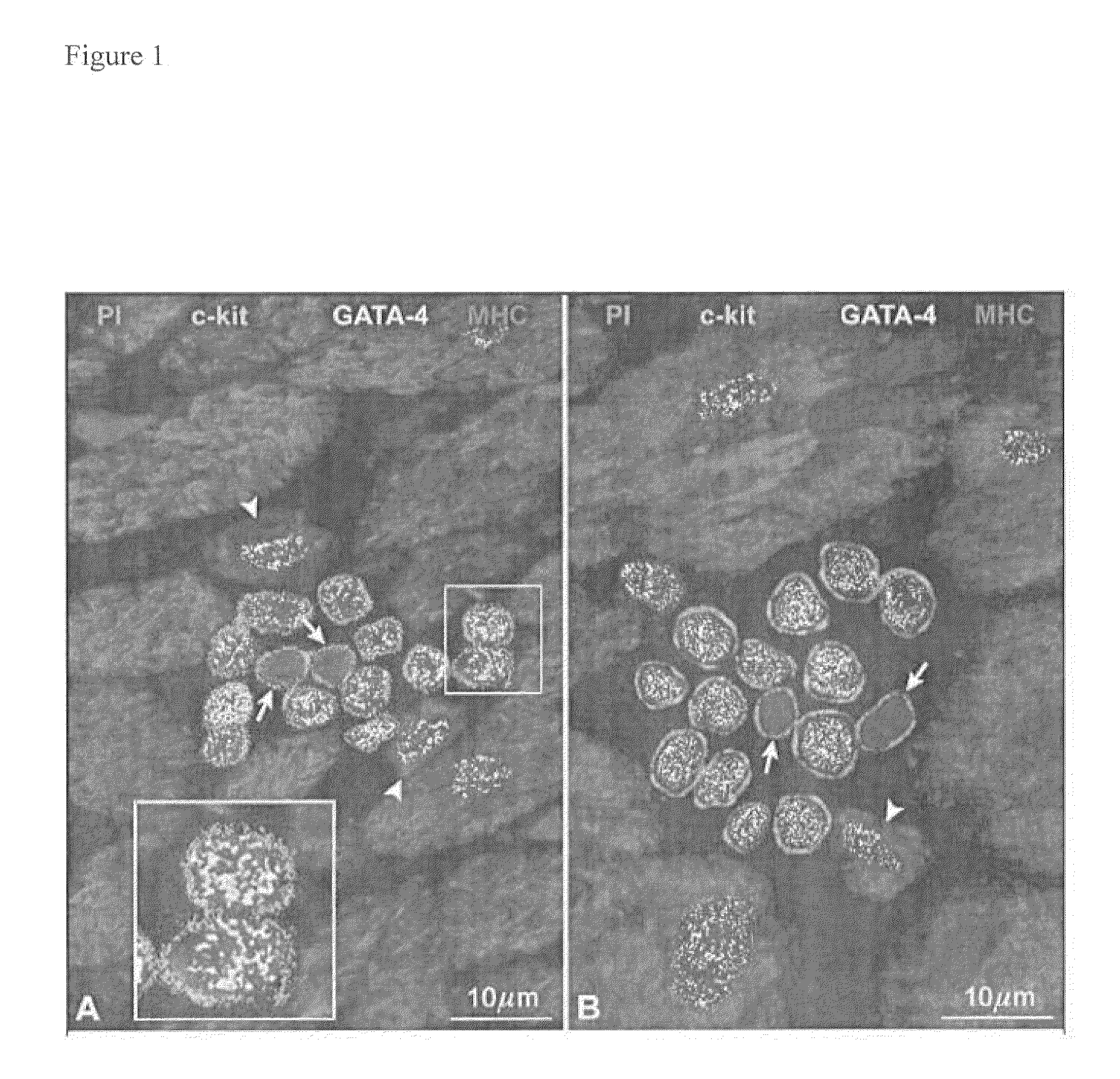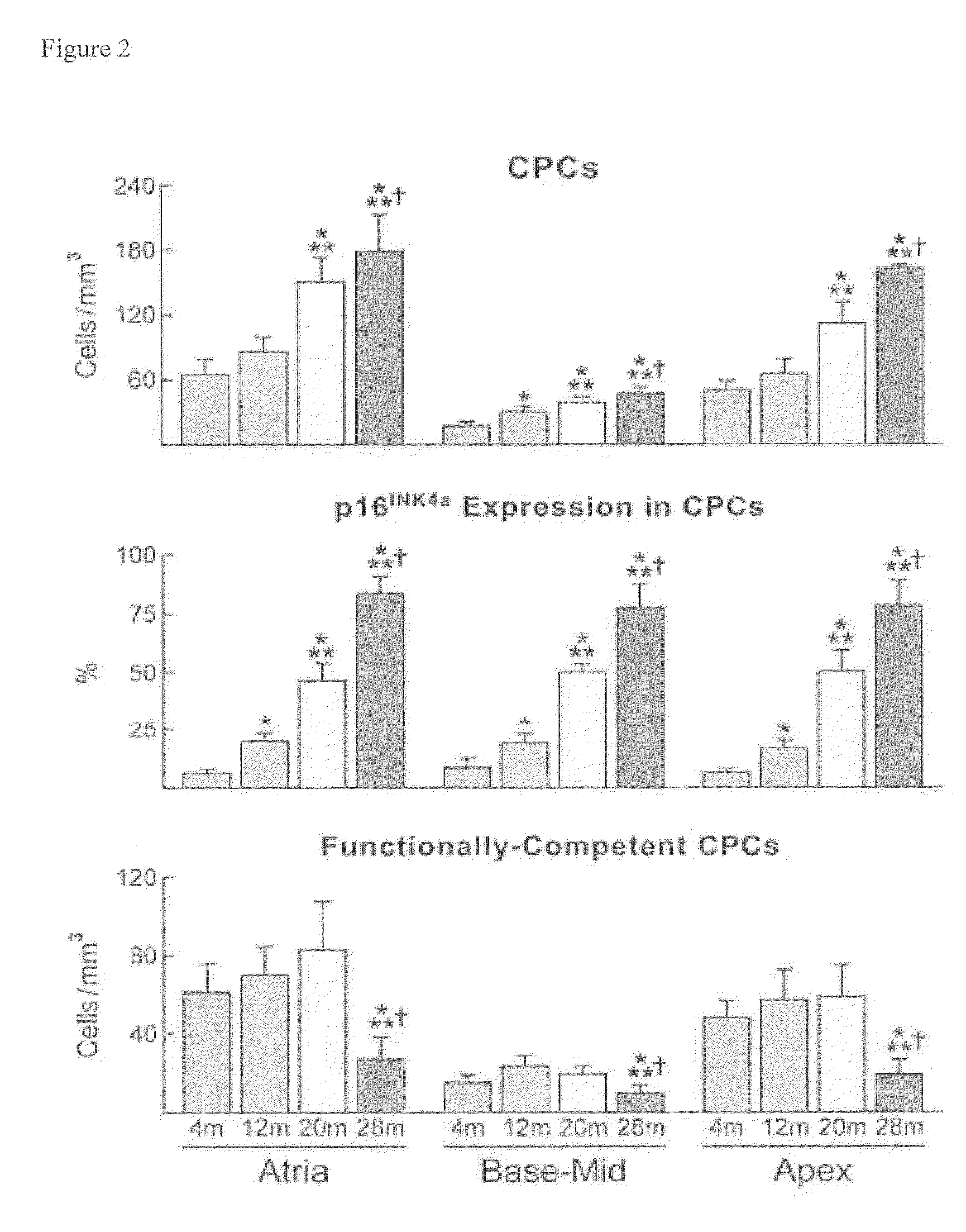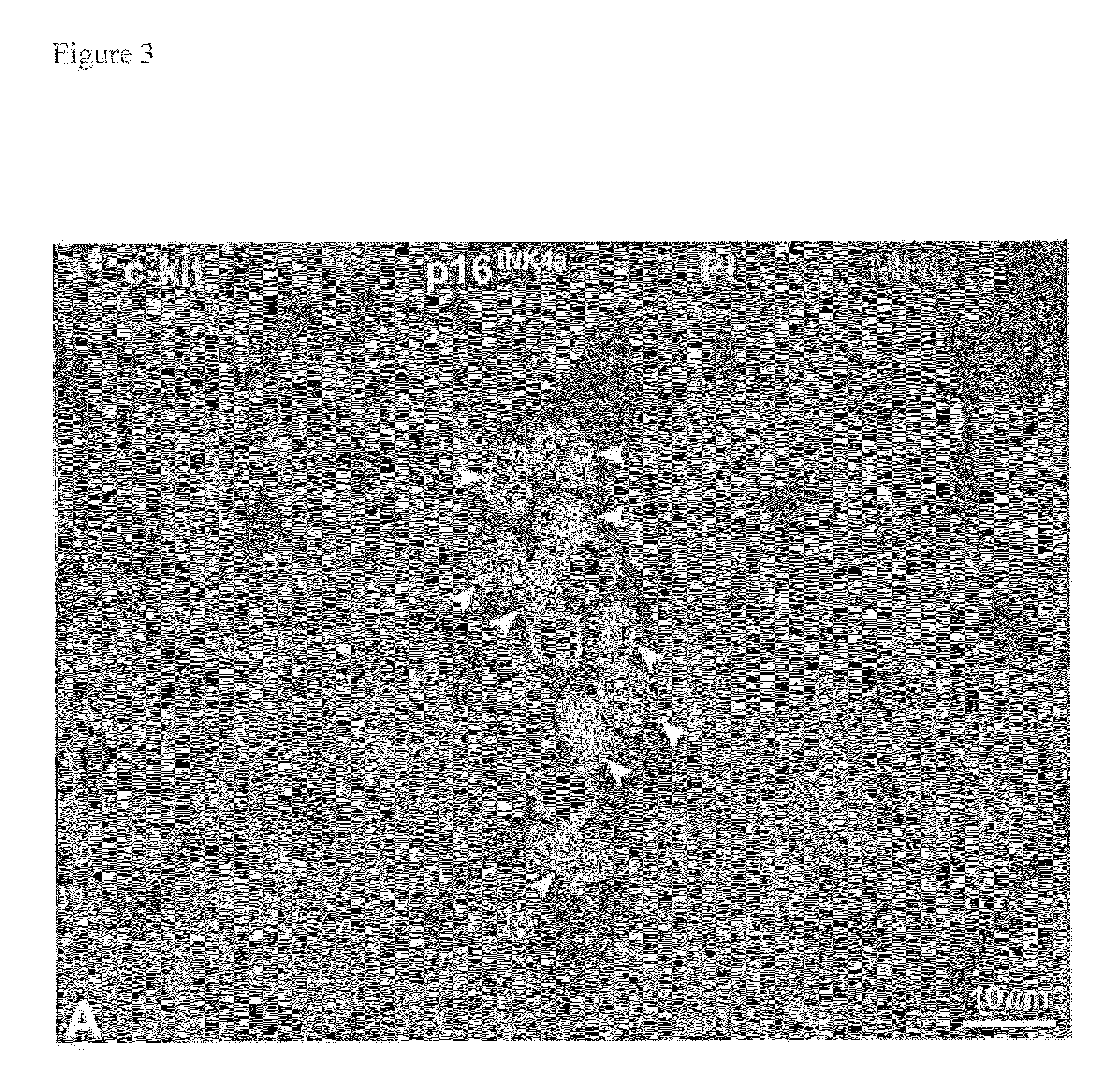Methods of isolating non-senescent cardiac stem cells and uses thereof
a non-senescent, stem cell technology, applied in the field of cardiology, can solve the problems of heart failure, death in the elderly, difficult to separate the inevitable pathology of the coronary circulation with age from the intrinsic mechanisms of myocardial aging, etc., to prevent or treat heart failure, and facilitate mobilization
- Summary
- Abstract
- Description
- Claims
- Application Information
AI Technical Summary
Benefits of technology
Problems solved by technology
Method used
Image
Examples
example 1
A Functional Pool of Cardiac Stem Cells is Preserved in the Aging Heart
A. Characterization of Cardiac Stem Cells in the Old Heart
[0145]Cardiac stem cells (CSCs), also known as cardiac progenitor cells (CPCs), are lineage-negative (LinNEG)cells that express the stem cell antigens c-kit, MDR-1 and Sca-1, alone or in combination (Beltrami et al. (2003) Cell 114: 763-776). LinNEG-CPCs are clustered with early committed cells in the cardiac niches (Urbanek et al. (2006) Proc. Natl. Acad. Sci. USA 103: 9226-9231), which are predominantly located in the atria and apex although they are also present at the base-mid-region of the left ventricle (LV) (see FIGS. 1A and 1B). To define whether myocardial aging is conditioned by alterations in CPC function with accumulation of old myocytes, we measured the number of CPCs together with the expression of the aging-associated protein p16INK4a in rats at 4, 12, 20 and 28 months of age. These ages correspond to young-adult, fully mature-adult, aged an...
example 2
The Balance of Growth Factor Receptor Systems is Shifted in Stem Cells of the Aging Heart
[0156]A. Expression of IGF-1 / IGF-1R, HGF / c-MET, and Ang II / AT1 R in Stem Cells from the Aging Heart
[0157]The IGF-1 / IGF-1R system preserves telomere length through attenuation of oxidative stress and phosphorylation of telomerase. Moreover, this system promotes CPC growth and survival via the Akt-P13 kinase pathway (Torella et al. (2004) Circ. Res. 94: 514-524; Gude et al. (2006) Circ. Res. 99: 381-388). However, IGF / 1-IGF-1R has no role in CPC migration and homing which are predominantly modulated by the HGF / c-Met receptor system (Linke et al. (2005) Proc. Natl. Acad. Sci. USA 102: 8966-8971; Urbanek et al. (2005) Circ. Res. 97: 663-673). The impact of IGF-1 on primitive cells is not restricted to the heart. IGF-1 induces proliferation and differentiation of satellite cells in skeletal muscle (Musaro et al. (2004) Proc. Natl. Acad. Sci. USA 101: 1206-1210) and prevents skeletal muscle atrophy wi...
example 3
Mobilization of Resident Cardiac Stem Cells by HGF in Young and Aged Hearts
[0168]A. Mobilized Cardiac Stem Cells have Long Telomeres and are p16INK4a-Negative
[0169]The presence of a compartment of non-senescent-CPCs in the aged heart raised the possibility that these cells may be activated and induced to translocate from their sites of storage in the atria and apex to the LV base-mid-region. A retroviral vector encoding EGFP was injected in the atrioventricular groove to label replicating cells in animals at 4 and 27 months (FIG. 25). In both cases, ˜9-12% c-kit-positive-CPCs were infected with EGFP at the site of injection. This value was consistent with the fraction of Ki67-positive-CPCs in this region (data not shown). Two days after infection, hearts were excised and three increasing concentrations of HGF were administered from the site of CPC accumulation in proximity of the atrioventricular groove to the LV mid-region (FIG. 25). As previously done, this chemotactic gradient wa...
PUM
 Login to View More
Login to View More Abstract
Description
Claims
Application Information
 Login to View More
Login to View More - R&D
- Intellectual Property
- Life Sciences
- Materials
- Tech Scout
- Unparalleled Data Quality
- Higher Quality Content
- 60% Fewer Hallucinations
Browse by: Latest US Patents, China's latest patents, Technical Efficacy Thesaurus, Application Domain, Technology Topic, Popular Technical Reports.
© 2025 PatSnap. All rights reserved.Legal|Privacy policy|Modern Slavery Act Transparency Statement|Sitemap|About US| Contact US: help@patsnap.com



